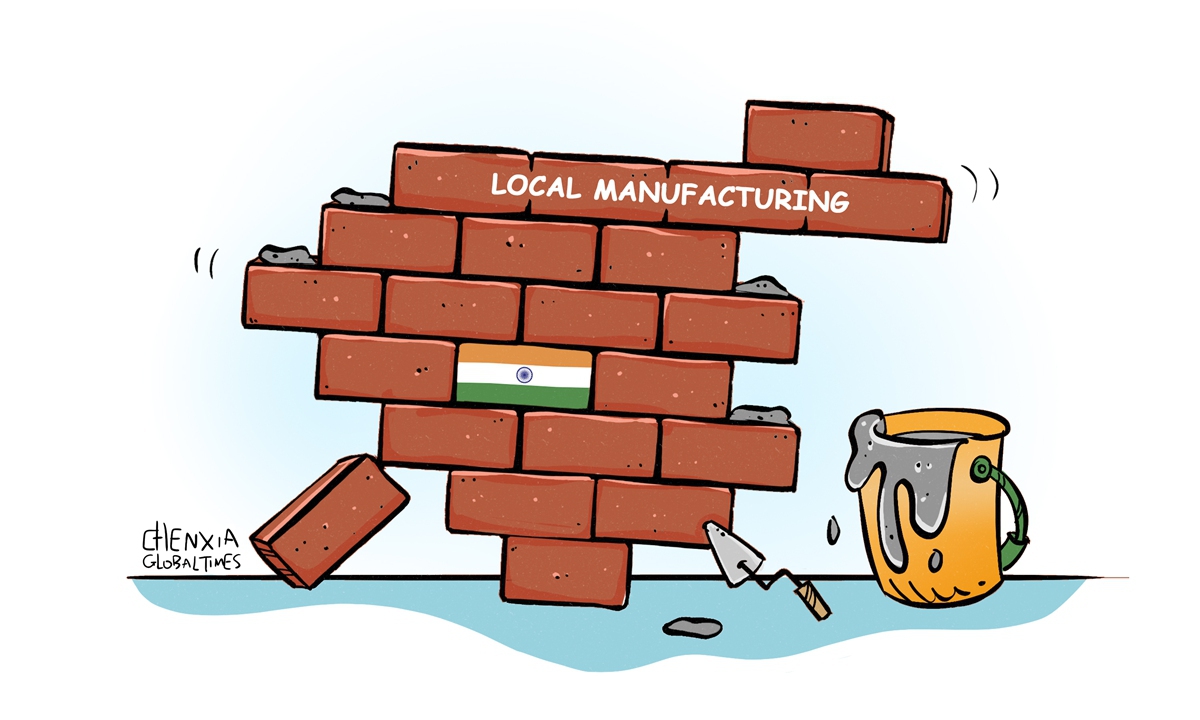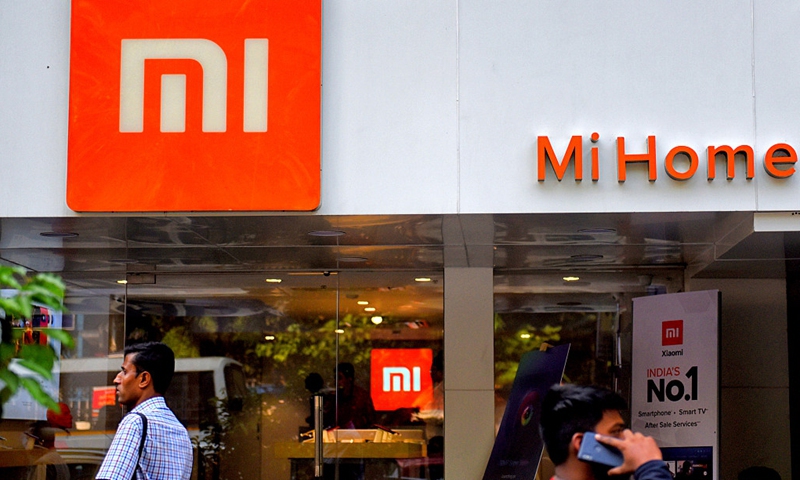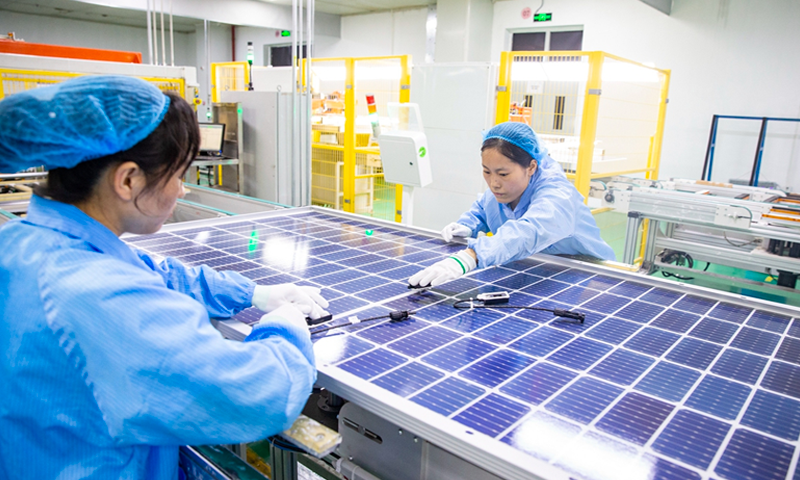Intensifying crackdowns targeting Chinese companies will backfire on India’s economy

Illustration: Chen Xia/Global Times
Indian tax authorities have reportedly launched an investigation into 40 leading Chinese solar companies in the name of alleged tax evasion, according to media reports. This development adds to recent examples of India's intensifying crackdown on Chinese companies operating in the Indian market.The frequent crackdowns targeting Chinese companies by Indian authorities have fundamentally shaken the confidence of Chinese enterprises in the Indian market. The apprehension among Chinese companies in India has spread to almost all industries including mobile phones, electric vehicles, solar, and home appliances.
In the past two years, Chinese investment in India has been limited, and there have been very few approvals from authorities in India. From the fiscal year 2021 to the fiscal year 2023, the Indian Ministry of Commerce and Industry has rejected FDI applications from a total of 58 Chinese companies.
India's suppression of Chinese companies is gradually escalating. The earliest to be affected were internet companies such as Tencent and Alibaba's investments. Then Huawei and ZTE were excluded from India's 5G trials. The smartphone industry has been hit the hardest by India's crackdown. Recently, India announced its intention to target foreign laptops and PCs, but due to opposition from the US, India has temporarily halted its moves.
In early October, Indian media reported that the country would tighten its economic security regulation toward China, and through the move, India actually wants to reduce the presence of Chinese elements in its economy.
India requires all entities with any commercial arrangements or investment entities with countries bordering India to undergo screening and registration in advance. Through this approach, on one hand, India prohibits Chinese companies from entering certain industries, and on the other hand, it aims to select industries that are beneficial to India and welcomes entry into those industries.
This development confirms the accusation that India is exploiting and making exorbitant profits off foreign companies. India initially attracts foreign companies to stimulate the growth of its domestic industries. Once the domestic industries flourish, India starts to squeeze the interests of these foreign players.
This pattern has been most obvious in the smartphone industry in recent years. After cultivating a domestic supply chain with the help of Chinese companies, India began intensively conducting audits and investigations on Chinese companies. This pattern in India is becoming increasingly clear, and now they want to replicate this model in other industries.
Currently, India's targeting is very obvious, which is aimed at China because its ambition is to replace China's position in the global production and supply chains.
India aims to achieve the "three replacements": replacing Chinese products with Indian products or products from other countries, replacing Chinese capital with Indian capital and capital from other countries, and replacing the cooperation model between China and the West with the cooperation model between India and the West. India intends to completely replace China in the Asian industrial chain or the global industrial chain through these "three replacements."
India's plot coincides with the interests of the US, which aims to exclude China from global supply chains. The reason why India is currently targeting Chinese companies is also to show the US that it hopes Western countries such as the US can make significant capital and technological investments in India to promote its industrial development.
Although India has ambitions to replace China at the center of global supply chains, it seems likely to fall short due to various constraints holding back the Indian domestic economy. The conditions for industrial development in India still lag behind, despite significant investments in infrastructure in recent years. Additionally, India's labor force - particularly in terms of well-trained workers - and industrial policies, also hinder the development of its industries.
Furthermore, the West still has reservations about investing in India. This is because Western companies have suffered many losses in the past in India. Western enterprises are aware that although India is currently choosing to cooperate with Western companies in order to replace China's position in the global supply chain, Western companies will still face setbacks in India when the domestic industry in India develops to a certain extent. This is because Indian monopolistic capitalists will not allow Western companies to make a lot of money in the Indian market.
The export of intermediate products from China to India is a significant advantage for India's exports to the West and other countries. If India continues to impose trade barriers on Chinese goods, including tariffs and non-tariff barriers, and adopts abrupt tax inspection measures to suppress Chinese companies, it will have a severe impact on the reputation of their business environment, raise the costs of domestic enterprises and actually result in a backlash effect on its own economy.
In fact, for India, the most pragmatic way to achieve industrialization is to deepen and expand economic and trade cooperation with China. Economically, this is the most convenient, cost-effective, and efficient approach. However, due to political reasons, India now aims to surpass and replace China, so the path it has chosen is not only bumpy, but also comes at a much higher cost.
The author is a senior fellow and secretary-general of the Research Center for China-South Asia Cooperation at Shanghai Institutes for International Studies. bizopinion@globaltimes.com.cn



